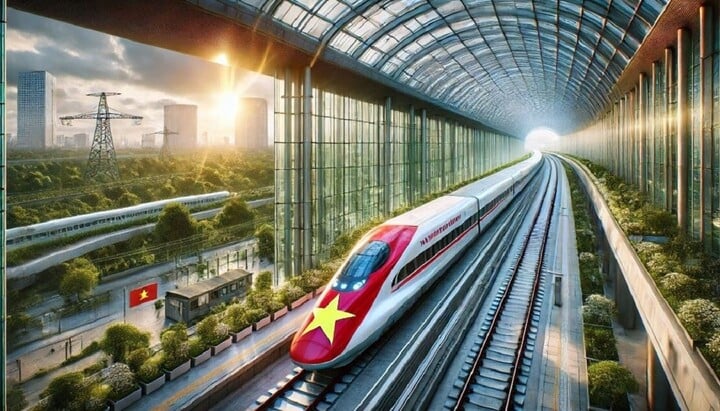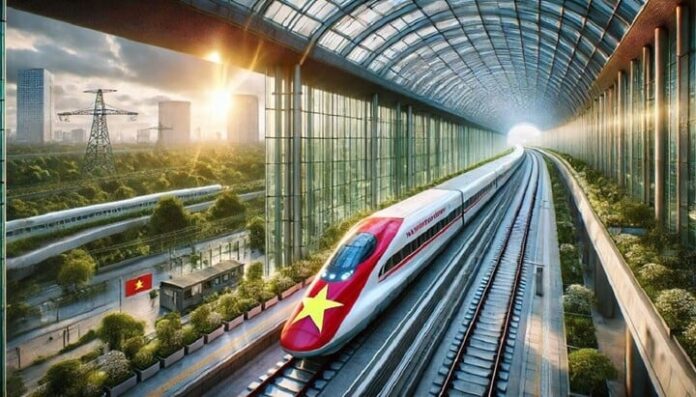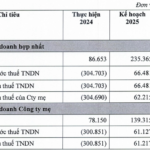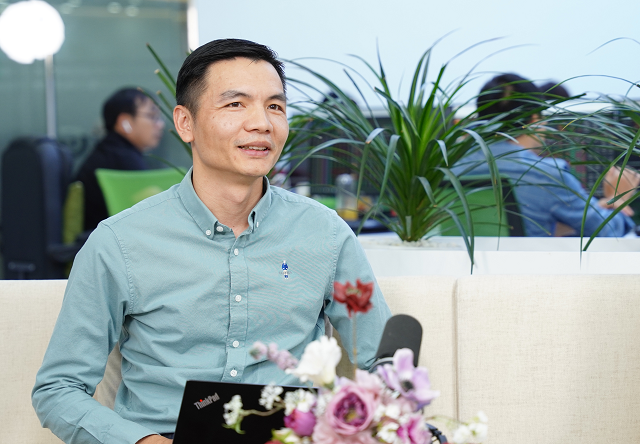At the recent HSC-hosted event, “Public Investment Motivation: Insider Perspective,” Mr. Nguyen Quang Huy, CEO of Deo Ca Corporation, shared his company’s plans to venture into several major transportation projects. These include three routes connecting to China: Lao Cai – Hanoi – Hai Phong, Hanoi – Lang Son, and Hanoi – Halong – Mong Cai, with a total investment of approximately $21.3 billion.
In addition, Deo Ca also aims to participate in the high-speed rail project between the North and the South ($67 billion) and the metro line projects in Hanoi and Ho Chi Minh City ($77.2 billion).
Mr. Huy, the CEO of Deo Ca Group, recently traveled to China, which boasts the world’s largest high-speed rail network, to collaborate with Chinese partners and study their railway system.
According to Mr. Huy, preparing the workforce is the most crucial aspect of venturing into a new field like high-speed railways. Therefore, Deo Ca has proactively partnered with universities, specifically Ho Chi Minh City University of Transport, to offer advanced degrees to its control engineers. The group also collaborates with domestic and international enterprises and corporations in Europe, such as Germany and France, and China, to send its personnel for training and gradually master the technology.
“For our domestic personnel, we turn our construction sites into training grounds to prepare our group’s combat workers and skilled workers to participate in the railway projects,” shared Mr. Huy.
Mr. Huy explained that the high-speed rail infrastructure could be tentatively divided into two parts. The first part is the sub-track (including sub-works) with a formula similar to expressway projects that domestic enterprises, not just Deo Ca, can master and implement.
“We are currently developing the Khe Net railway tunnel project in Quang Binh province. This is probably the first newly constructed railway tunnel project in nearly 100 years in Vietnam. Previously, the North-South railway system was inherited from the French, and we only repaired and renovated it. With the Khe Net railway tunnel, we plan to complete it by the end of this year,” said Mr. Huy.
The second part is above the track (including tracks, electrification, signaling systems, and other auxiliary works). These are new areas that require joint ventures and partnerships to learn from the experience of international enterprises.
“Since they already have the experience, we have sent batches of personnel abroad to learn. We have signed cooperation agreements with Chinese and European corporations to be ready for training and technology transfer when projects in Vietnam are implemented,” Mr. Huy added.

In addition to experience and personnel, the Deo Ca Group’s CEO noted that machinery and equipment are also crucial factors to prepare. The enterprise is expediting the progress of expressway projects to mobilize equipment for the railway project promptly. Regarding new technology equipment, the group will order from experienced international enterprises.
“During our recent visit to China, we placed orders for construction machinery and equipment and digital technology applications in construction, such as automatic tunnel boring machines and automatic rollers, with the China National Machinery Industry Corporation. We are ready to import this equipment to Vietnam when domestic railway projects are implemented in the coming time,” emphasized Mr. Huy.
The Deo Ca Group’s CEO acknowledged the bold proposals made by many domestic enterprises regarding railway projects in the past.
With Resolution 68 on the private economy and specific policies and support from the government, Deo Ca’s leadership believes that Vietnamese enterprises can approach new technologies and eventually master high-speed railway technology, which is not too challenging.
“During 2005-2008, people thought that we could not master tunnel drilling technology and had to rely entirely on Japanese foreign technology when implementing the Hai Van Pass tunnel. However, Deo Ca took concrete steps, received support and policies from the government to implement the project. We have proven ourselves with specific products, and at this point, we confidently master transportation tunnel drilling technology,” Mr. Huy illustrated.






































